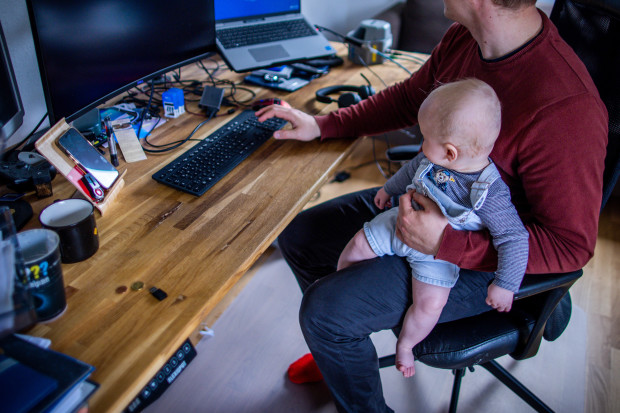
Three years on from the forced virtual work environment of the pandemic, the clash between employers who want their workers in person, and employees who want the work-life balance of remote work, has become somewhat heightened. Companies across industries are asking their employees to make a return to the office in some fashion.
Many, including such big names as Zoom, Amazon, Apple, Disney, IBM, Blackrock and Meta are instating some iteration of a hybrid schedule, with Zoom asking those living within 50 miles of an office to make the commute twice a week.
DON'T MISS: Employment expert explains why remote work won't last
Wall Street has been demanding some decidedly more strict return-to-office policies, led by Goldman Sachs, which wants its people back in the office five days a week.
“I completely understand why someone doesn’t want to commute an hour and a half every day, totally got it,” JPMorgan CEO Jamie Dimon told The Economist in July. “Doesn’t mean they have to have a job here either.”
As employees — 98% of which would like to work remotely at least some of the time, according to Forbes — are beginning to deal with changing work realities, some experts have said that the days of remote work are numbered.
Employment expert Jason Greer told CNBC last week that the employment world is on track to return to the five-day in-office work week.
But Greg Hill, a human resources expert and Exos' chief people officer, thinks that remote work is here to stay, though not in the way it was at the height of the pandemic. To Hill, the answer is all about balance.
The clash between the employers and their employees
"I think the balance today is hybrid. There's a general consensus organizations have to find a balance of getting people together, to have community to grow, think, innovate, to dissent, all of those things can't happen as organically on computers," Hill said in an interview with TheStreet. "The second thing we're hearing is that employees don't feel the same."
The benefits of working from home — doing things between calls and having access to family — are weighing heavily on employees' minds. But employers, Hill said, are trying to run a business. Still, he doesn't see an environment anytime soon that would bring remote work crumbling into nonexistence — its efficacy was proven during the pandemic, so the most realistic solution is a hybrid one.
While having a partially in-person environment is important for collaboration and innovation, Hill said that it is important for companies to be intentional about that in-person time.
"Being intentional about what that workday looks like in person versus at home is a really important start," he said.
Exos' hybrid solution involves "team Tuesdays and Thursdays," where people come into the office specifically to meet, collaborate, debate, innovate and discuss. The rest of the week is up to each employee or team asynchronously.
At the basis of Exos' environment is this idea of "heavy load, heavy recovery."
The firm is precise and intentional about how work is accomplished, specifically pertaining to collaborative work and meetings.
Currently, the company, which has spent decades as an elite coaching company, is engaged in a four-day workweek study, where Fridays are "you do you" days, where some employees will take the day to do individual work, while others might take the day off entirely. The only rule is that you can't engage with other coworkers on Fridays.
The days that people are on are, as a result, highly productive.
"Science says it works. In addition to that, finding dedicated time for think and work time is as important as finding intentional time for collaboration and direct learning, and that's what we're studying," Hill said. "You'll appreciate working from home a lot more when you go into the office once in a while."
"I believe this future of work is still some type of hybrid environment," Hill added.
Get investment guidance from trusted portfolio managers without the management fees. Sign up for Action Alerts PLUS now.







